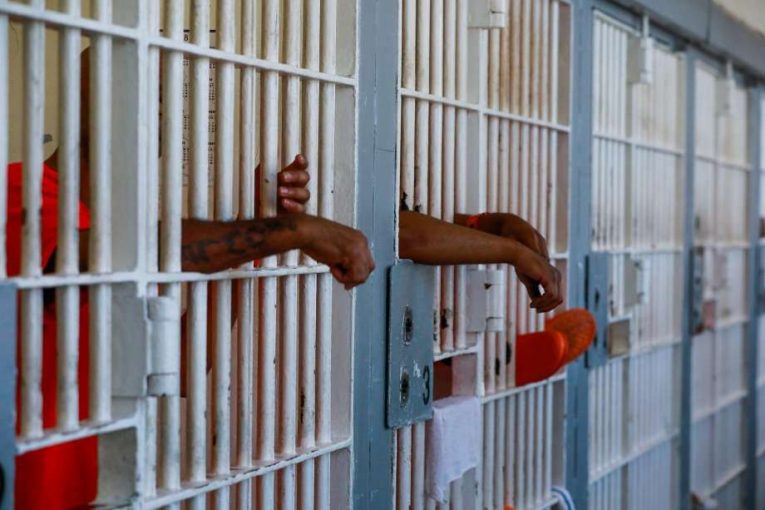

Up until the last month, Sa Francisco had managed its jail population better than most counties and avoid large numbers of COVID cases in part because they managed to reduce the jail population. But in the last month, with the premature ending of Zero Bail, San Francisco has seen an increase in its COVID cases.
San Francisco County jail has seen a 40% increase in positive COVID-19 cases since June 18, 2020.
This surge prompted a broad coalition – including the Bar Association of San Francisco’s Criminal Justice Taskforce (BASF-CJRTF), the Public Defender, the District Attorney, San Francisco Pretrial Diversion Project, and Jail Health Services – to send a joint letter to the San Francisco Superior Court, urging it “in the strongest possible terms,” to restore the zero bail policy in San Francisco to help reduce the jail population during the ongoing pandemic.
The California Judicial Council implemented an emergency bail schedule on April 13 to help reduce jail populations to help guard against the fatal consequences of outbreaks in overcrowded jails. It specified zero dollar bail amounts for people charged with low-level offenses to be quickly released from custody without having to post bail.
When the Judicial Council repealed the emergency bail schedule on June 10, it allowed local jurisdictions to continue using it to protect the health of the incarcerated, jail staff, courts, and the community. Several major counties have continued using the zero dollar bail schedule – including Los Angeles, Sacramento, Contra Costa, Alameda, San Diego, Santa Barbara, Santa Clara and Fresno.
San Francisco Superior Court decided not to continue using the zero dollar bail schedule. This has led to an increased number of people remaining in jail longer, even as new cases of COVID-19 are on the rise. In San Francisco county jail, twenty people have tested positive for COVID-19 since the jail started testing people upon arrival on April 18, with eight confirmed cases of COVID-19 since June 18.
Dr. Lisa Pratt, Director of the Department of Public Health Jail Health Services, emphasized the importance of keeping the jail population low in order to prevent the spread of COVID-19. “Social distancing is already challenging in a jail, but San Francisco jails have successfully avoided a major outbreak of COVID by listening to medical experts and keeping the jail population low,” she explained. “The decision to revoke the zero-bail policy fails to prioritize the real public health concerns of a spread of the virus in jail—and puts everyone who lives and works in jail—as well as those who interact with them—at higher risk of the virus.”
“Removing zero bail signals an assumption that our current public health crisis is over, which is clearly not the case,” said San Francisco Public Defender Mano Raju. “As the crisis at San Quentin State Prison and in other overcrowded jails and prisons across the country makes abundantly clear, we can’t control the spread of the virus without dramatically reducing the incarcerated population. San Francisco Superior Court’s decision to move away from this policy means that people with low level, non-violent offenses eligible for immediate release just last month, are now being booked and held in jail before a judge can review their case. This increases the risk of spreading COVID-19 throughout the jail population and community. San Francisco should follow the lead of other counties throughout the state and act in accordance with the recommendations of public health officials.”
“Any additional time spent in custody because of the lack of Zero Bail increases the risk to individuals in the jail, our staff, community partners and Sheriff and Court employees,” said David Mauroff, CEO of San Francisco Pretrial Diversion Project. “Reinstating Zero Bail supports our shared public health priorities and reduces jail exposure and the number of people in jail.”
“We are disappointed with the San Francisco courts for moving away from an effective public health policy despite the fact that the overwhelming majority of people released on zero bail did not re-offend, and many were never even charged with a crime,” said District Attorney Boudin. “Our office stopped seeking bail in San Francisco long before this policy went into effect precisely because forcing people to post bail does not protect public safety and merely criminalizes the poor. With the revocation of the zero-bail policy, many people will sit in jail even before seeing a judge—putting them and everyone around them at risk.”
“Incarceration during the coronavirus pandemic is a racial justice issue, and people of color are facing worse health outcomes and higher risk of death from coronavirus,” said Yolanda Jackson, Executive Director and General Counsel of the Bar Association of San Francisco. “Elimination of Zero Bail further perpetuates the racial disparities of both pretrial incarceration and the public health crisis, and will also take a financial toll on economically vulnerable communities of color.”
To sign up for our new newsletter – Everyday Injustice – https://tinyurl.com/yyultcf9
